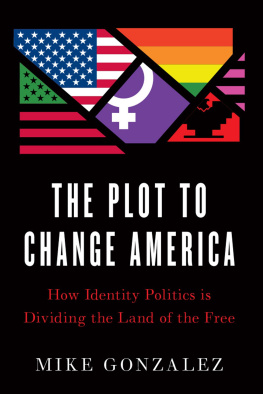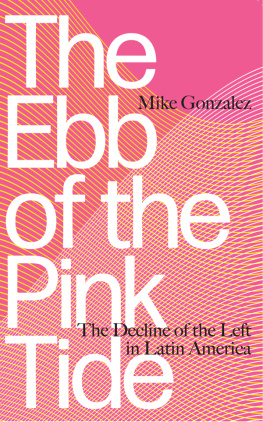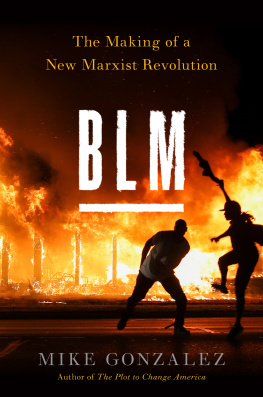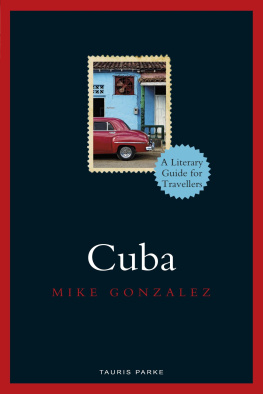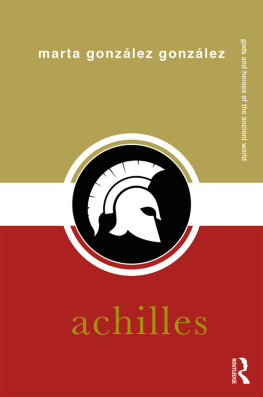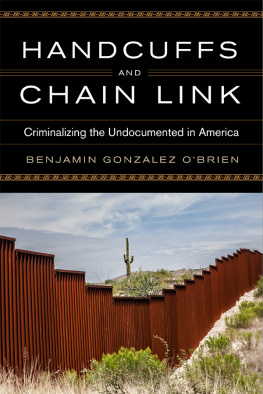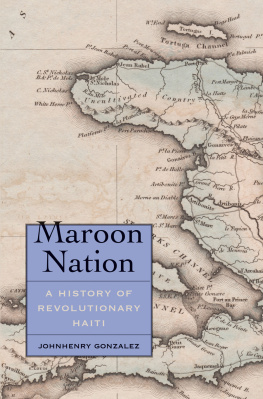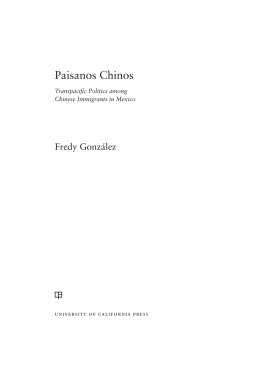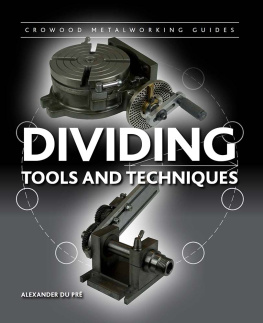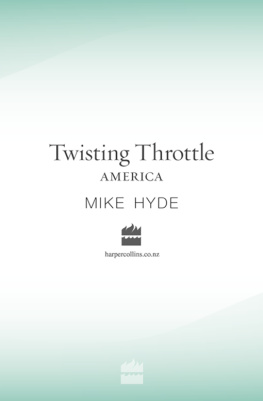Mike Gonzalez - The Plot to Change America: How Identity Politics Is Dividing the Land of the Free
Here you can read online Mike Gonzalez - The Plot to Change America: How Identity Politics Is Dividing the Land of the Free full text of the book (entire story) in english for free. Download pdf and epub, get meaning, cover and reviews about this ebook. year: 2020, publisher: Encounter Books, genre: Politics. Description of the work, (preface) as well as reviews are available. Best literature library LitArk.com created for fans of good reading and offers a wide selection of genres:
Romance novel
Science fiction
Adventure
Detective
Science
History
Home and family
Prose
Art
Politics
Computer
Non-fiction
Religion
Business
Children
Humor
Choose a favorite category and find really read worthwhile books. Enjoy immersion in the world of imagination, feel the emotions of the characters or learn something new for yourself, make an fascinating discovery.
- Book:The Plot to Change America: How Identity Politics Is Dividing the Land of the Free
- Author:
- Publisher:Encounter Books
- Genre:
- Year:2020
- Rating:5 / 5
- Favourites:Add to favourites
- Your mark:
- 100
- 1
- 2
- 3
- 4
- 5
The Plot to Change America: How Identity Politics Is Dividing the Land of the Free: summary, description and annotation
We offer to read an annotation, description, summary or preface (depends on what the author of the book "The Plot to Change America: How Identity Politics Is Dividing the Land of the Free" wrote himself). If you haven't found the necessary information about the book — write in the comments, we will try to find it.
The Plot to Change America: How Identity Politics Is Dividing the Land of the Free — read online for free the complete book (whole text) full work
Below is the text of the book, divided by pages. System saving the place of the last page read, allows you to conveniently read the book "The Plot to Change America: How Identity Politics Is Dividing the Land of the Free" online for free, without having to search again every time where you left off. Put a bookmark, and you can go to the page where you finished reading at any time.
Font size:
Interval:
Bookmark:

THE PLOT TO CHANGE AMERICA

2020 by Mike Gonzalez
All rights reserved. No part of this publication may be reproduced, stored in a retrieval system, or transmitted, in any form or by any means, electronic, mechanical, photocopying, recording, or otherwise, without the prior written permission of Encounter Books, 900 Broadway, Suite 601, New York, New York 10003.
First American edition published in 2020 by Encounter Books, an activity of Encounter for Culture and Education, Inc., a nonprofit, tax-exempt corporation.
Encounter Books website address: www.encounterbooks.com
Manufactured in the United States and printed on acid-free paper. The paper used in this publication meets the minimum requirements of ANSI/NISO Z39.481992
(R 1997) (Permanence of Paper).
FIRST AMERICAN EDITION
LIBRARY OF CONGRESS CATALOGING-IN-PUBLICATION DATA
Names: Gonzalez, Mike, 1960 author.
Title: The plot to change America : how identity politics is dividing the land of the free / by Mike Gonzalez.
Identifiers: LCCN 2019058983 (print) | LCCN 2019058984 (ebook) ISBN 9781641771009 (cloth) | ISBN 9781641771016 (ebook)
Subjects: LCSH: Identity politicsUnited States. | United StatesSocial conditions19601980 | United StatesSocial conditions1980Social changeUnited States.
Classification: LCC HN65 .G595 2019 (print) | LCC HN65 (ebook) DDC 306.0973dc23
LC record available at https://lccn.loc.gov/2019058983
LC ebook record available at https://lccn.loc.gov/2019058984
To Jack, Saskia, and Rafe
Contents
Introduction
Identity politics is all around us. Whether you know it or not, we are all bathing in it. Some Americans have embraced it gladly, while others have simply become inured to it and no longer bat an eyelid. Many others, however, have begun to take notice, and to them something does not seem right.
If you are one of the latter, you raise an eyebrow when the principal at your daughters school repeats the incantation diversity is our strength! and you hear that some subjects, even math, are taught differently depending on a students race. You think of OrwellWar Is Peace, Freedom Is Slavery. But you understand why parents dont put up a fuss. Who wants to get on the wrong side of the principal by explaining to her that, in fact, we can observe in the laws of physics, and in the social sciences, that it is unity that forges strength? Who wants to tell her that two plus two always equals four no matter what your race is? Likewise, at the office, when the head of HR asks you to place a sign on your desk that reads, Im an ally! you stifle the urge to wisecrack, Why? Are we at war? Its the head of HR, after all. Again, you understand why so many of your colleagues put the darn sign on their desk, and you refrain from asking about rumors that another session is afoot to uncover employees subconscious bias.
Back at home, when the talking head on TV spends the first ten minutes of airtime discussing all the identity groups that the newly elected dogcatcher belongs to, you want to snap back, Who cares? Can she catch strays? Only crazy people talk to the TV, however. But you do talk back when the next news item is about a father who has lost custody of his seven-year-old son because he disagrees with his estranged wife, who wants the boy to transition into a girl. Later that evening, when your own son, who is applying to college, announces he will identify as Hispanic because your mothers father was born in Monterrey, your first reaction is to tell him, but I never even met Grampa Ortiz. On second thought, it might get Jimmy into Cornell, so you repress the unease you feel about gaming the system. You also feel relieved that, if hes no longer considered white, at least he wont be made to feel at fault for everything. At the same time, it will sting your neighbor deeply when he finds out that his small company did not get the city contract. He couldnt produce a narrative of oppression, and someone else got the contract through a set-aside program. His mothers father was born in Salerno, and after immigrating was repeatedly beat up by rough Irish kids in Boston. But that doesnt do your neighbor any good, since Italians are not one of the designated oppressed minorities.
Or say youre an immigrant from Perus port of Callao. You came to New York in the 1970s, settling in Queens with dreams of becoming American and one day having American children, the same as other Americans. Soon after your arrival, however, you heard people on TV saying that you were now a third thing, a Hispanic, and you should be proud of belonging to this category. Joining the American mainstream was an unattainable goal, said these loud people, and you shouldnt aspire to it, anyway. America is a racist place, they went on, and if you wanted to have a measure of success, you had to join this massive new ethnic collective. All this disturbed you somehow, even if you could not articulate why. Decades later, it dawns on you that you had been enlisted into a struggle to overturn the very country and system that had attracted you to emigrate in the first place, and you are not happy about this.
In all these small and large ways, identity politics has become the operating system of our national hardware. As with war, even if you are not interested in it, identity politics is interested in you.
This Book
But what is identity politics, anyway? In a Twitter exchange on this question with Vox Media reporter Jane Coaston last year, I took a stab at defining the term: I mean the deliberate creation of pan-ethnic and other identity groups; the idea that members of this panoply of collectives should get compensatory justice; the culture of victimhood all of this engenders. Twitters character limits force us to cram complicated ideas into pithy epigrams, and in my tweet I tried to concisely present the main elements of what has become an ideology of our times. The purpose of this book is to explain how and why these elements came together, who was behind the ideologys rise, and what we can do about it.
Many theories have been put forward to explain how this ideology was suddenly sprung on America. They cover the gamut, from the demise of the family, to the erosion of social capital in many working-class neighborhoods, to the absence of a unifying enemy following Americas victory in the Cold War. What follows in this book is a more-or-less-chronological account of the rise of identity politics, put in the context of the doctrines and philosophies that fed into it, and discussion of its impact on the American system and the threat it poses to the liberties that sustain the American way of life. We have identity politics today because our government has created ethnic and sexual categories whose members have been instilled with resentments against the country and its system and given real financial benefits for nursing their grievances. Insisting on group grievances thereby perpetuates the identity groups. If we stop this vicious cycle, we may be able to free ourselves from the grip of identity politics.
The book traces the origins of identity politics to the late 1960s and 1970s, when the white establishment panicked over the black riots then tearing up parts of northern cities. This panic led to two main outcomes. First, members of the establishment offered temporary racial benefits to pacify Northern blacks, who had seen fewer advances than their Southern counterparts during the civil rights era. Second, they accepted the assertion by leftist activists claiming to mediate on behalf of other groups that there was an analogy to be made between the suffering of blacks and the experiences of Americans of Mexican, Chinese, Puerto Rican, Japanese, Filipino, and other descents. This analogy, which was also extended to women as a group, was drawn over and over. It was, of course, dishonest and deceitful: the experience of black Americans was in fact unique. Nevertheless this way of thinking led in time to such absurdities as immigrants fresh off the boat receiving compensatory justice for the real and imagined suffering of their ancestors. Racial preferences also never went away, but more than half a century later have become a fixture of American life, and keep being expanded. As this book further demonstrates, activists of those earlier decades sought to move the country away from its limited-government traditions inherited from the Anglo-Scottish Enlightenment toward the centralized state planning drawn from the Continental Kantian, Hegelian, and Marxian worldviews.
Next pageFont size:
Interval:
Bookmark:
Similar books «The Plot to Change America: How Identity Politics Is Dividing the Land of the Free»
Look at similar books to The Plot to Change America: How Identity Politics Is Dividing the Land of the Free. We have selected literature similar in name and meaning in the hope of providing readers with more options to find new, interesting, not yet read works.
Discussion, reviews of the book The Plot to Change America: How Identity Politics Is Dividing the Land of the Free and just readers' own opinions. Leave your comments, write what you think about the work, its meaning or the main characters. Specify what exactly you liked and what you didn't like, and why you think so.

